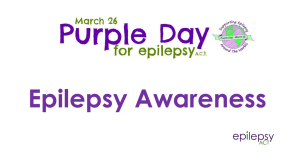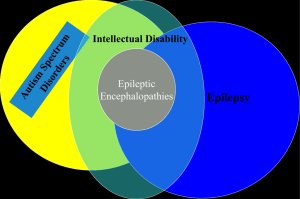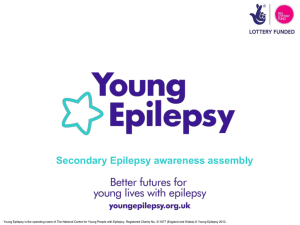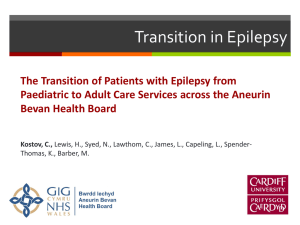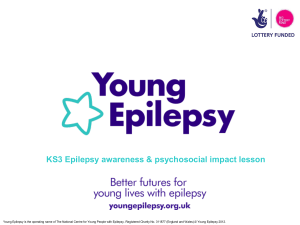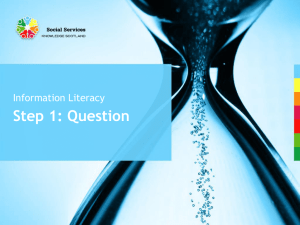The co-morbidities and epilepsy
advertisement
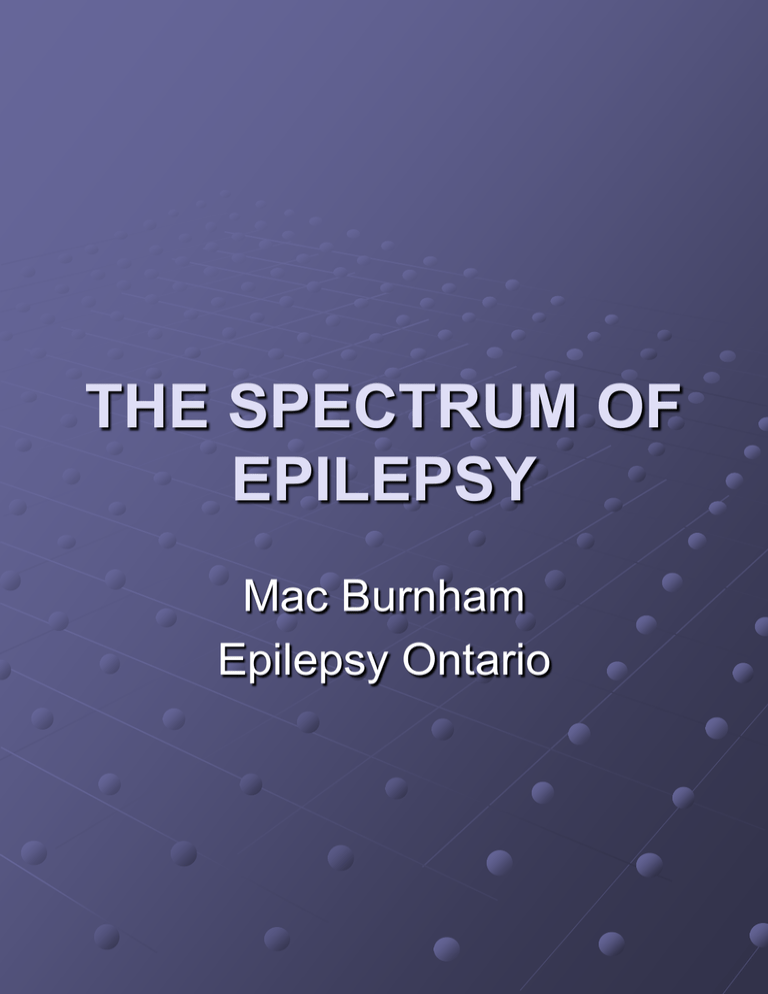
THE SPECTRUM OF EPILEPSY Mac Burnham Epilepsy Ontario Co-Morbidities & Epilepsy The co-morbidities are disorders that go along with epilepsy. They may be more serious than the seizures themselves. Co-Morbidities & Epilepsy Common co-morbidities include: Cognitive Psychosocial / Psychiatric Behavioural Reproductive (adults) Sleep Co-Morbidities & Epilepsy All co-morbidities vary from individual to individual. They will be sometimes present and sometimes absent. Epilepsy & Cognitive Impairment Epilepsy & Cognitive Impairment One of the most common complaints in people with intractable epilepsy is a defect in memory. The reasons for memory impairment are not completely clear. In some cases, it may relate to the side-effects of anticonvulsant drugs (next slide). In others, it may relate to changes in the brain. Epilepsy & Cognitive Impairment Likelihood of anticonvulsant drugs to cause cognitive impairment (“sedative” side-effects) More likely Clonazepam (Rivotril) Phenobarbital (Luminal) Phenytoin (high doses) (Dilantin) Primidone (Mysoline) Topiramate (Topamax) Less likely Carbamazepine (Tegretol) Clobazam (Frisium) Gabapentin (Neurontin) Lamotrigine (Lamictal) Valproate (Depakene, Epival) Effects vary from individual to individual. Epilepsy & Psychosocial/ Psychiatric Impairment Epilepsy & Psychosocial/ Psychiatric Impairment Emotional and psychosocial difficulties are disproportionately high in people with epilepsy. In one large study, about 50% of the children with intractable epilepsy were identified as having serious psychosocial problems Epilepsy & Psychosocial/ Psychiatric Impairment In another study, clear-cut psychiatric disorders were identified in 33% of children with epilepsy, as compared to 7% in the general population and 2% in children with other chronic illnesses. Epilepsy & Psychosocial/ Psychiatric Impairment A recent study on adults with uncontrolled seizures and normal IQs reported that about 30% had psychiatric disorders. Epilepsy & Psychosocial/ Psychiatric Impairment The most common psychosocial/psychiatric problems are anxiety, depression, irritability, aggression, and irrational periods of rage. In children at risk for suicide, there is a fifteen-fold overrepresentation of children with epilepsy. Epilepsy & Psychosocial/ Psychiatric Impairment Often there is social isolation and withdrawal. Adult children may continue to live with their parents. The suicide rate in adults is five times higher than in the general adult population. Epilepsy & ADHD Epilepsy & ADHD In addition to emotional problems, children with uncontrolled seizures may have problems with hyperactivity. It is estimated that 20-30% of children with epilepsy have concurrent attention deficit/hyperactivity disorder (ADHD). A still larger number of children with seizures show deficits in attention or in impulse control, without showing the full ADHD syndrome. Epilepsy & ADHD The emotional and behavior problems associated with ADHD may be compounded by the effects of the anticonvulsant drugs. The “paradoxical irritability” caused by anticonvulsants is probably an exacerbation of tendencies towards AD/HD. Epilepsy & Reproductive Problems Epilepsy & Reproductive Problems Reproductive and hormonal disorders are common in both men and women with intractable epilepsy. This is particularly true if the epilepsy is of temporal-lobe origin. Epilepsy & Reproductive Problems In women, menstrual disorders are seen, such as irregular or missed menstrual cycles, or cycles in which there is no ovulation. Fertility is reduced to 70-80% of normal. Hormonal disorders include hypogonadism (with too little estrogen) and polycystic ovaries (with too much estrogen). Anticonvulsant drugs, and particularly valproate, may contribute to these disorders. Epilepsy & Reproductive Problems In men with intractable epilepsy, there is an increased risk or erectile dysfunction. Over 90% of men with epilepsy have abnormal semen analyses, including decreased sperm count and impaired sperm motility. In both sexes, diminished sexual desire and responsiveness have been described. Intractable Epilepsy & Sleep Intractable Epilepsy & Sleep People with uncontrolled seizures often experience sleep disturbances. These are believed to be caused both by their seizures and by some of the anticonvulsant drugs. This disturbed sleep sometimes leads to daytime drowsiness and poor cognitive performance. In particular, sleep apnea is overrepresented in people with epilepsy. Co-Morbidities & You Both in children and adults, the comorbidities are responsive to therapy. Unfortunately, these psychiatric problems are seldom diagnosed or treated. Therapy focuses on seizure control and other problems are neglected. People with seizures should demand treatment for the accompanying comorbidities.

